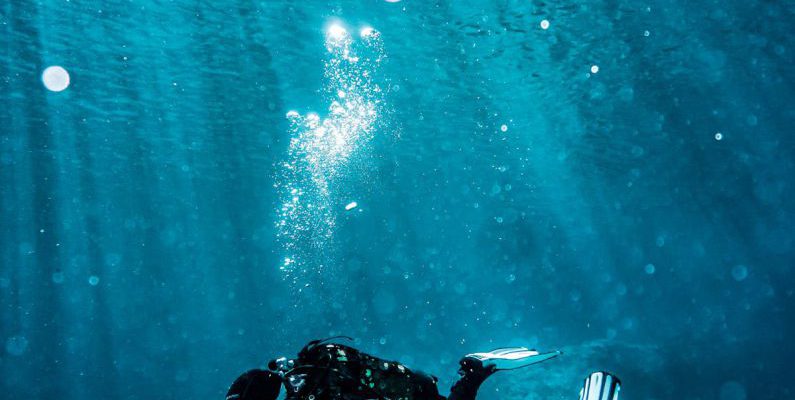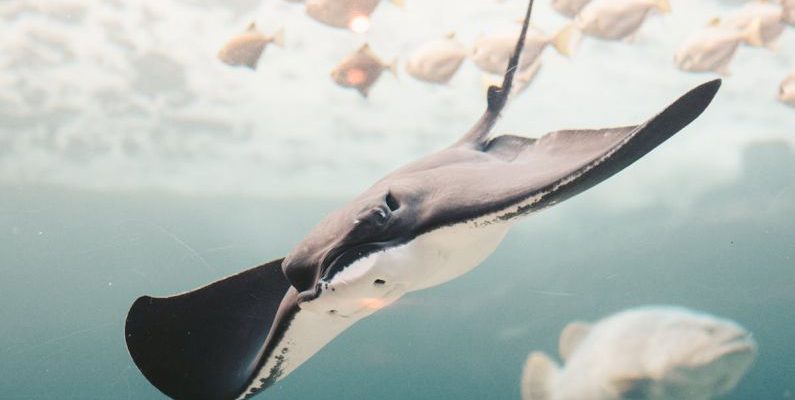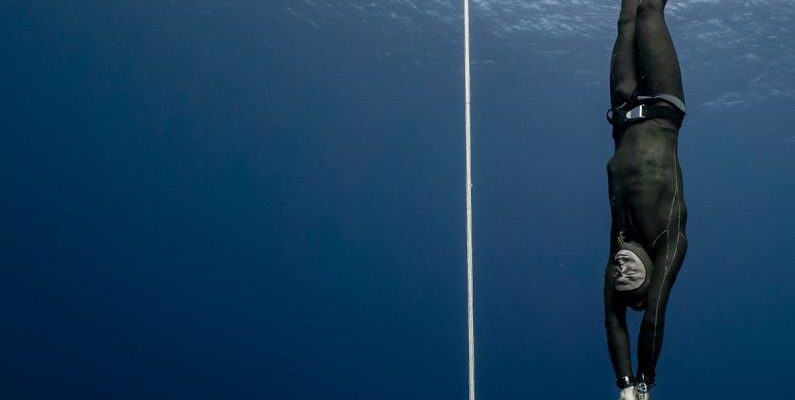Diving into the mesmerizing underwater world never fails to unveil stunning and diverse marine creatures. Among these captivating beings are nudibranchs, often referred to as the jewels of the sea. These colorful gastropods, also known as sea slugs, come in a wide array of shapes, sizes, and vibrant hues, making them a favorite among divers and underwater photographers. Here is what divers should know about these fascinating creatures.
Marine Life
In Marine Life
The ocean depths hold some of the most magnificent creatures on Earth, and among them is the majestic manta ray. These graceful giants of the sea captivate divers and marine enthusiasts with their impressive size and elegant movements. From their fascinating characteristics to tips on how to encounter them safely, here is all you need to know about the captivating manta ray.
Manta Ray Characteristics
Manta rays, belonging to the genus Manta, are cartilaginous fish that belong to the Mobulidae family. These gentle giants are known for their enormous size, with some individuals reaching up to 23 feet (7 meters) in wingspan. Despite their intimidating appearance, manta rays are harmless to humans as they do not have stingers like their relatives, the stingrays. Their flattened bodies are predominantly black on top with white undersides, allowing them to blend in with their surroundings as they glide through the ocean with unparalleled grace.Feeding Habits
Manta rays are filter feeders, primarily consuming plankton and small fish using their specialized feeding structures called cephalic lobes. These lobes located at the front of their heads help funnel food into their mouths as they swim. Manta rays are known to perform impressive barrel rolls to corral their food, a behavior that is both mesmerizing and efficient. Despite their massive size, these gentle giants sustain themselves on the tiniest of organisms, showcasing the delicate balance of marine ecosystems.Habitat and Migration
Manta rays are found in tropical and subtropical waters around the world, preferring areas with rich plankton concentrations. They are often spotted near coral reefs, cleaning stations, and underwater seamounts where their food source thrives. Manta rays are known to undertake long-distance migrations, traveling vast distances to reach mating and feeding grounds. Some populations are known to aggregate in specific locations seasonally, providing a unique opportunity for divers to witness these majestic creatures in large numbers.Encountering Manta Rays
Diving with manta rays is a dream come true for many underwater enthusiasts, but it requires caution and respect for these gentle giants. When encountering manta rays, it is crucial to maintain a safe distance and avoid any sudden movements that may startle them. Approaching manta rays from the side rather than head-on is recommended to reduce the risk of causing distress to the animals. Observing these creatures in their natural habitat is a privilege that comes with the responsibility of minimizing our impact on their behavior and environment.Diving Tips for Manta Ray Encounters
If you are planning a dive to see manta rays, here are some essential tips to enhance your experience: - Choose a reputable dive operator with experience in manta ray encounters. These operators will prioritize the safety of both divers and marine life. - Practice good buoyancy control to minimize disturbances to the surrounding marine environment. - Respect any guidelines provided by dive guides regarding behavior around manta rays. - Avoid touching or chasing manta rays, as this can disrupt their natural behavior and cause stress. - Capture memories through photography or videography, but ensure that your equipment does not interfere with the dive or harm the marine life.Appreciating the Beauty of Manta Rays
The sight of a manta ray gracefully gliding through the ocean is a breathtaking experience that leaves a lasting impression on all who encounter them. These gentle giants serve as ambassadors of the sea, reminding us of the importance of conservation and respect for marine life. By following responsible diving practices and spreading awareness about these magnificent creatures, we can ensure that future generations will continue to marvel at the beauty of the majestic manta ray.
In Marine Life
Marine life plays a crucial role in maintaining the balance of our planet's ecosystems. From providing oxygen to regulating climate, the oceans and the creatures that inhabit them are essential for life on Earth. However, the marine environment is facing unprecedented threats from human activities such as overfishing, pollution, and habitat destruction. It is now more important than ever to conserve marine life and protect our oceans for future generations. Divers, with their unique access to the underwater world, can play a significant role in efforts to preserve marine biodiversity and promote sustainable practices.
**Exploring the Underwater World**
Divers have the privilege of exploring the mesmerizing beauty of the underwater world, witnessing firsthand the incredible diversity of marine life. From colorful coral reefs teeming with fish to majestic marine mammals such as whales and dolphins, the oceans offer a wealth of natural wonders to discover. By immersing themselves in this unique environment, divers develop a deep appreciation for the beauty and complexity of marine ecosystems, making them passionate advocates for marine conservation.
**Threats to Marine Life**
Despite its beauty and importance, marine life is facing numerous threats that endanger its survival. Overfishing has depleted fish populations, disrupting marine food chains and ecosystems. Pollution from plastic waste, oil spills, and chemicals is contaminating the oceans, harming marine animals and ecosystems. Climate change is causing ocean temperatures to rise and coral reefs to bleach, leading to widespread habitat loss. These threats, combined with habitat destruction and unsustainable practices, pose a grave danger to marine biodiversity and the health of our oceans.
**The Role of Divers in Marine Conservation**
Divers are uniquely positioned to contribute to marine conservation efforts in various ways. Through underwater clean-up dives, divers can help remove trash and debris from the ocean, reducing the impact of pollution on marine life. By participating in citizen science programs, divers can collect data on marine species and habitats, providing valuable information for conservation research and management. Divers can also raise awareness about marine conservation issues and advocate for sustainable practices within the diving community and beyond.
**Promoting Sustainable Diving Practices**
In addition to actively participating in conservation efforts, divers can promote sustainable diving practices to minimize their impact on the marine environment. By following guidelines for responsible diving, such as avoiding contact with marine life, using environmentally friendly sunscreen, and practicing buoyancy control to prevent damage to coral reefs, divers can help protect fragile ecosystems. Choosing eco-friendly dive operators that prioritize conservation and sustainability can also make a positive difference in supporting marine protection efforts.
**Empowering Divers as Ocean Stewards**
Divers have the potential to be powerful advocates for marine conservation and ocean stewardship. By sharing their passion for the underwater world and the importance of protecting marine life, divers can inspire others to take action to preserve our oceans. Through education, outreach, and collective action, divers can make a significant impact in raising awareness about marine conservation issues and promoting responsible behavior both above and below the surface.
**Conclusion: Divers as Guardians of the Ocean**
In conclusion, the conservation of marine life is vital for the health of our planet and the well-being of future generations. Divers, with their unique connection to the underwater world, have a special role to play in protecting marine biodiversity and promoting sustainable practices. By actively participating in conservation efforts, promoting sustainable diving practices, and empowering others to be ocean stewards, divers can make a meaningful difference in safeguarding our oceans for the benefit of all living beings. Let's continue to work together to conserve marine life and ensure a thriving and healthy marine environment for generations to come.


